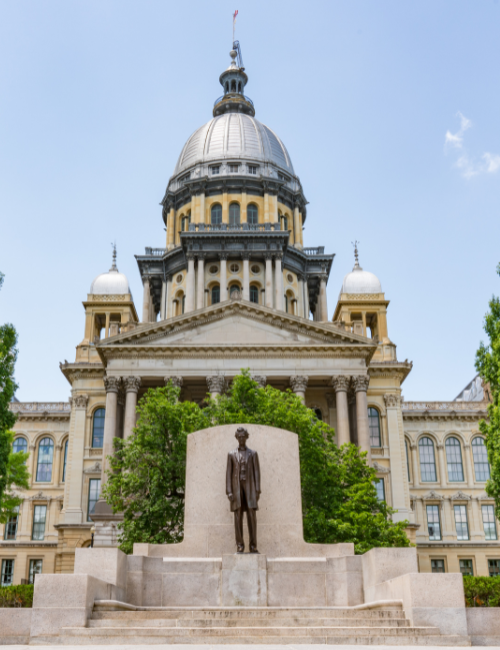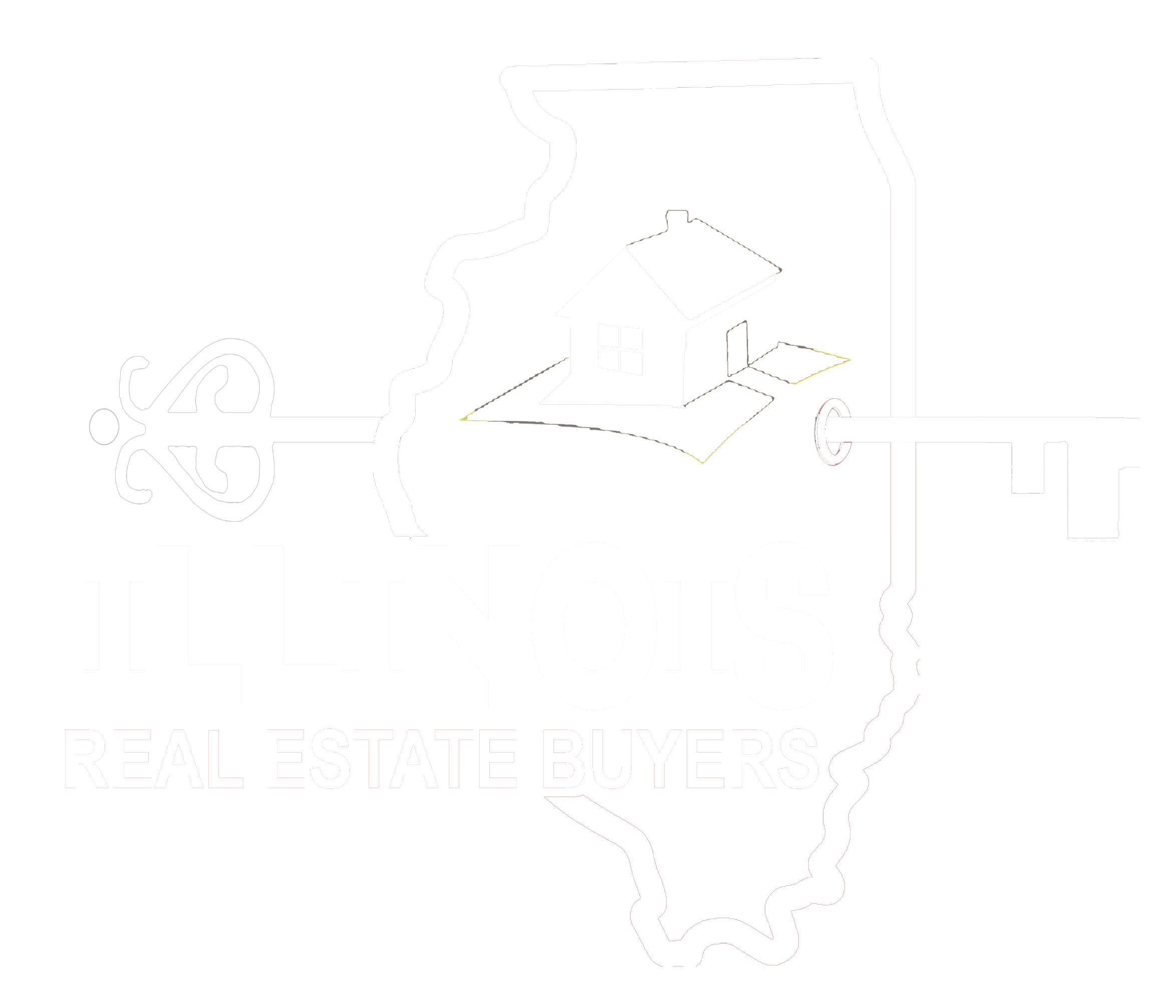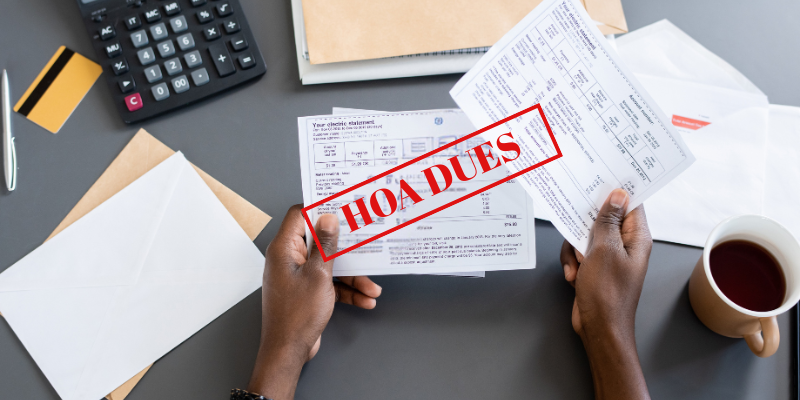
Learn strategies for dealing with delinquent HOA dues in Illinois, focusing on legal remedies like liens and evictions, to effectively manage arrears within homeowners associations.
Failure to pay Illinois HOA dues: What happens?
An Illinois HOA collects overdue assessments by what means?
Illinois homeowners’ associations (HOAs) follow a process to collect overdue assessments. Late-paying homeowners’ user accounts are initially flagged. Collection usually begins with reminders and email alerts. Messages inform homeowners of overdue dues and encourage prompt payment.
Illinois HOAs detail delinquency consequences. They warn that unpaid debt will result in further action. Firm, informative communication emphasizes community goodwill at this stage.
What are the common consequences of failing to pay HOA dues in Illinois?
Not paying Illinois HOA dues can have serious consequences. A property lien by the association is a major risk. A lien can hinder a homeowner’s ability to sell or refinance.
Add late fees to the balance, increasing financial strain. HOAs may sue, leading to foreclosure in extreme cases. The homeowner may lose the property and incur legal fees. Homeowners must pay HOA dues to avoid these dire consequences.
How do Illinois HOAs handle delinquent accounts?
Illinois HOAs cope with delinquent accounts in various ways. The homeowner is contacted first to understand why payments were missed and discuss solutions. Payment plans from many associations allow homeowners to catch up on overdue payments without legal action.
The HOA may use collection agencies or legal action to recover dues if negotiation fails. The association and homeowners must communicate and cooperate to reduce HOA delinquency in Illinois. Homeowners who discuss payment issues with the HOA early can avoid severe consequences and reach a mutually beneficial solution.
Can My Illinois Property Be Foreclosed Upon Due to Unpaid HOA Dues? A Step-by-Step Guide
What legal steps does an Illinois HOA take to foreclose on a property for delinquent dues?
In Illinois, if you fall behind on your HOA dues, the homeowners association (HOA) may start the foreclosure process. First, the HOA files a lien on your property for the unpaid dues. This legal action makes a claim against your property, which must be resolved before selling or refinancing. After placing the lien, the HOA can seek a court judgment to enforce the lien through foreclosure. This involves a legal filing where the court evaluates the HOA’s claim. If the court sides with the HOA, foreclosure can proceed to recover the dues.
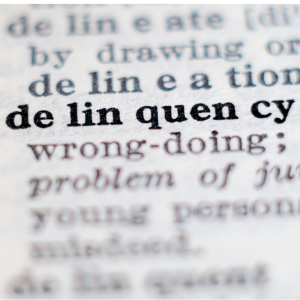
How long does the foreclosure process typically take in Illinois?
The foreclosure timeline in Illinois varies based on several factors, such as court schedules and any defenses you might raise. Typically, the process spans from eight months to over a year, from the initial filing to the property’s final sale. Delays can occur if you, as a homeowner, respond to the lawsuit by negotiating or contesting the foreclosure in court. Homeowners facing HOA delinquency should prepare for a potentially extended legal process.
What are my rights as a homeowner facing foreclosure due to unpaid HOA dues?
As a homeowner, you have specific rights when dealing with a potential foreclosure initiated by your HOA. You are entitled to proper notice regarding the foreclosure process and any court actions involved. It’s possible to negotiate with the HOA to resolve outstanding dues and potentially stop the foreclosure. Legal assistance is available to help guide you through the defense process, and if hiring a private attorney isn’t feasible, legal aid services might be an option. Exploring payment plans or disputing the debt can also help protect your property. Learn more about your rights and options by asking: Can an HOA take your house?
What are the potential costs involved in an HOA foreclosure?
Foreclosure due to unpaid HOA dues can lead to significant costs. These include attorney fees for both the HOA and you, court costs, and other legal fees related to the proceedings. The financial burden can increase the amount owed well beyond the initial delinquent dues. Understanding these costs is crucial as you develop a strategy to address the situation and negotiate with the HOA to minimize financial impact.
Negotiating with Your Illinois HOA Regarding Delinquent Dues: Strategies and Tips
What strategies can I use to negotiate a payment plan with my Illinois HOA?
Dealing with your Illinois HOA on delinquent dues can be tricky, but you can use these strategies to negotiate a payment plan effectively:
• Start Early: Contact your HOA as soon as possible to show your commitment to resolving the issue.
• Seek Legal Counsel: Get advice from legal experts familiar with Illinois HOA regulations. This helps ensure you are well-informed about your rights.
• Prepare a Clear Plan: Before you negotiate, come up with a realistic payment plan. Know what you can afford and present this clearly to your HOA.
Being prepared and clear in your approach can help you reach a favorable agreement, especially when working with We Buy Houses in Illinois and nearby areas.
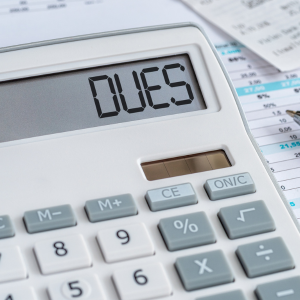
What documents should I prepare for negotiations?
Having the right documents can strengthen your negotiation position with your HOA. Here’s what you should gather:
• Financial Statements: Collect detailed records of your income and expenses. This shows your financial standing.
• Hardship Letters: Write a letter explaining any hardships, like job loss or medical bills. This provides context to your request.
Preparing these documents demonstrates transparency and can lead to better outcomes.
What if my HOA refuses to negotiate?
If your HOA is unwilling to negotiate, there are other steps you can take:
• Mediation: A mediator can help facilitate communication between you and the HOA, aiming for a fair agreement.
• Consult Legal Counsel: An attorney experienced in HOA disputes can provide legal advice and represent your interests, helping find a resolution.
Taking these actions shows you are committed to addressing the situation constructively.
How can I improve my chances of a successful negotiation?
To improve your odds of a successful negotiation with an HOA, consider these tips:
• Legal Representation: Having a lawyer guide you ensures professionalism and may improve the negotiation process.
• Strategize Wisely: Tailor your approach based on your specific situation and any past dealings with the HOA.
• Keep Communication Open: Engage openly and respectfully with your HOA. This can foster cooperation.
Using these methods can significantly enhance your chances of coming to a satisfactory agreement with your HOA.
For more help with real estate matters, contact Illinois Real Estate Buyers. We offer guidance to help you make informed homeownership decisions.
Legal Ramifications of Delinquent HOA Dues in Illinois: Liens, Lawsuits, and More
What types of legal action can an Illinois HOA take against a homeowner for unpaid dues?
Homeowners in Illinois who do not pay their HOA dues might face several legal actions. These actions include:
• Liens: The HOA can place a lien on a homeowner’s property if dues are not paid. This can make selling the property more difficult in the future.
• Lawsuits: If dues remain unpaid, the HOA might file a lawsuit to recover the money. This could lead to extra court costs and attorney fees for the homeowner.
• Foreclosure: In serious cases, continued non-payment may lead to foreclosure. The HOA may take steps to foreclose on the lien to recover outstanding amounts.
Seeking legal aid or consulting an attorney familiar with HOA delinquency laws in Illinois is recommended.
Can an HOA place a lien on my property? How does this affect my credit and ability to sell?
Yes, an HOA can place a lien on your property due to unpaid HOA dues in Illinois. This can have significant effects:
• Credit Impact: A lien can lower your credit score, which might affect your ability to borrow money in the future.
• Selling the Property: A lien can complicate selling your property, as it must be dealt with before or during the sale process.
If facing these issues, it’s important to explore legal aid options to fully understand the impact on credit and property sales.

What are the potential costs associated with legal action, including attorney fees and court costs?
Litigation due to unpaid HOA dues can lead to various expenses:
• Attorney Fees: Homeowners may face high attorney fees, which depend on the case’s complexity and duration.
• Court Costs: Other expenses related to court proceedings can add up quickly, such as filing fees and administrative costs.
• Foreclosure Expenses: If foreclosure occurs, additional legal fees and costs will arise.
Understanding these potential costs helps homeowners prepare financially for dealing with legal disputes over HOA dues. Consulting a legal professional can provide clarity and help reduce these expenses.
For more insights and assistance with real estate matters, consider contacting Illinois Real Estate Buyers. Our team is dedicated to offering guidance and support for Illinois homeowners, including those looking to work with cash home buyers in Chicago and surrounding areas.
Resources and Assistance for Homeowners Facing Delinquent HOA Dues in Illinois
What resources are available to homeowners struggling with HOA dues in Illinois?
Homeowners in Illinois facing overdue HOA dues have several resources and assistance programs available. It’s vital to understand the financial assistance programs offered by state and local entities, which may provide temporary relief and help manage financial obligations.
• Financial Assistance Programs: These programs provide support to homeowners struggling with HOA dues, aiming to prevent further debt.
• Legal Aid: Legal aid organizations in Illinois offer guidance and representation for homeowners involved in HOA disputes. Many services operate on a sliding scale or are pro bono, ensuring access for those in need.
Exploring these resources can ease the financial strain from delinquent HOA dues. Homeowners are encouraged to consider each option to find the best fit for their situation.
Are there any nonprofit organizations that can assist?
Yes, several non-profit organizations in Illinois assist homeowners with HOA dues issues. They provide various forms of support and resources to alleviate financial burdens:
• Housing Action Illinois: This organization offers counseling services and referrals to other helpful resources.
• Local Community Organizations: Many local non-profits offer workshops, advice, and direct assistance to homeowners.
Connecting with these non-profits can provide homeowners with support systems to help them address their challenges.
What should I look for when seeking an attorney specializing in HOA disputes?
Choosing the right attorney is important for handling HOA disputes in Illinois. Here’s what to keep in mind:
• Specialization: Look for an attorney who specializes in HOA disputes and is well-versed in Illinois HOA laws.
• Experience: Find a lawyer with significant experience in similar cases to ensure effective representation.
• Reputation: Check reviews and references to confirm the attorney’s reputation in handling HOA-related cases.
Selecting an attorney with the right skills can greatly affect the outcome of your dispute.
Where can I find reliable information about Illinois HOA laws and regulations?
Homeowners seeking reliable information on Illinois HOA laws have several resources at their disposal:
• Official State Websites: The State of Illinois offers access to relevant statutes and guidelines. These are primary sources for accurate information.
• Library and University Resources: University libraries often provide access to extensive legal databases with detailed information on HOA laws.
• Law Firms and Legal Publications: Some law firms publish well-researched articles and guides explaining HOA regulations.
Using these resources helps homeowners gain a better understanding of and comply with Illinois HOA laws.
FAQs
What steps can HOAs take to collect delinquent dues in Illinois?
HOAs in Illinois can send reminder letters, impose late fees, and hire collection agencies to handle overdue dues. Legal actions like filing liens or starting court proceedings may also be required.
How can delinquent HOA dues affect property values?
Late dues can reduce the HOA’s cash flow, impacting maintenance and amenities, which can lower property values. Timely payments from all members are important for keeping the community attractive.
What are the consequences of not paying HOA dues in Illinois?
Not paying HOA dues can lead to fines, suspension of privileges, or legal actions such as liens or foreclosures. Property owners should know these risks and communicate with their HOA if facing financial issues.
How does Illinois law handle delinquent HOA payments?
Illinois law allows HOAs to collect unpaid dues using liens and foreclosure. Consulting an attorney familiar with Illinois homeowners association laws is recommended for proper handling of delinquencies.
Are emotional support animals exempt from HOA pet rules in Illinois condos?
HOAs often need to accommodate emotional support animals under federal fair housing laws, even with pet restrictions. Documentation from a healthcare professional is usually required to validate the need.
What should Illinois homeowners know about HOA eviction proceedings?
Evictions for unpaid dues are rare, but repeated failures might lead to foreclosure. It’s important to address arrearages quickly and consider mediation before litigation.
How can collection agencies assist HOAs in managing unpaid dues?
Collection agencies help recover owed amounts efficiently while complying with the FDCPA. They are key resources for HOAs dealing with persistent delinquencies.
Can bankruptcy stop the enforcement of delinquent dues?
Filing for bankruptcy may temporarily halt collections, but HOA dues generally remain a homeowner’s responsibility. Consulting an attorney knowledgeable in Illinois bankruptcy and HOA laws is advised.
Key Insights
• Collecting HOA dues in Illinois involves understanding legal frameworks, such as the Illinois Not-for-Profit Corporation Act, and handling delinquency issues effectively.
• Addressing delinquent payments requires proactive communication and may involve collection agencies before pursuing legal action.
• Effective management of delinquent HOA dues in Chicago and across Illinois is crucial for maintaining property values and community infrastructure.
• For Illinois homeowners associations, it is beneficial to understand the consequences of arrearages and consider mediation before litigation.
• Tackling delinquency issues in Chicagoland can be complex, often requiring expert advice.
• Employing fair debt collection practices is essential when dealing with delinquent HOA dues in Illinois.
• In severe cases of delinquency, legal actions like obtaining restraining orders or judgments may be necessary.
• Understanding laws concerning Illinois squatter’s rights and tenant damage is important for effectively navigating delinquency.
• Utilizing experienced lawyers and management companies can streamline collection processes and improve efficiency.
• Collection strategies may include sending written notices to delinquent unit owners, allowing time for a response before proceeding.
• Addressing delinquency in HOAs and COAs often requires a comprehensive approach, including assessing fines and interest.
• Use internal and external links to reputable sources to enhance authority and usefulness regarding managing delinquent HOA dues.
• Provide resources for Illinois homeowner assistance after abandonment or attorney fee issues to ensure community resilience.
• FAQs addressing common questions like “What happens if you don’t pay HOA dues in Illinois?” can improve understanding and compliance.
• Ensure that information on delinquent dues is accessible and actionable through mobile optimization and clear calls to action.
Do you need to sell your home? Sell quickly, avoid costly repairs, or prefer a hassle-free sale. Illinois Real Estate Buyers is here to help. We offer fair cash offers, handle all the details, and make the process seamless. Ready to sell or have questions? Call us at (773) 305-6373 for a no-obligation offer. Get started today!
| LIENHOLDER | EQUITABLE LIENS | KANSANS | STATE OF KANSAS | MEDICAL SERVICES | HEALTH CARE |
| MEDICAL CARE | BALANCE BILLING | INSURANCE COMPANY | INSURER | FORECLOSE | STATUTES OF LIMITATIONS |
| ATTORNEY | LAWYER | LEGAL COUNSEL | LITIGATION | HEALTH CARE PROVIDER | INJURIES |
| INJURY | COMPENSATION | DAMAGES | ACTUAL DAMAGES | WAGES | PAID OFF |
| PERSONAL INJURY | PERSONAL INJURY CLAIM | MARRIAGE | GARNISHING WAGES | FINANCES | |
| CREDIT COUNSELOR | COPAYMENTS | CO-PAYMENT | SOLOSUIT | INFORMATION | BORROWER |
| CONTRACTS | COMPLAINT | BUDGETING | TRUST | TOOL | TEXAS |
| TAX | TAXATION | SUMMONS | COURT SUMMONS | REPAYMENT PLANS | REAL PROPERTY |
| MEDICARE | MASSACHUSETTS | HEALTH CARE PROVIDERS | HEALTH PRACTITIONER | HEALTH CARE PRACTITIONER | GFE |
| GOOD FAITH ESTIMATE | GOOD FAITH | DEDUCTIBLES | DEBT FORGIVENESS | CONSUMER PROTECTION LAWS | COMPANY |
| CASH | CREDIT INSTITUTIONS | ATTORNEY FEES | ATTORNEY’S FEES | THE UNITED STATES | TERMS OF USE |
| RESEARCH | PRIVACY | PRACTITIONER | PHYSICAL THERAPY | PHYSICAL THERAPIST | DOCUMENT |
| CREDIT REPORT | IN MISSOURI IF | A PAYMENT PLAN | TERMS OF USE | MY HOUSE IN MISSOURI | FOR UNPAID MEDICAL BILLS |
| IN MISSOURI IN MISSOURI | YOUR HOUSE IN MISSOURI | HOUSE GO INTO FORECLOSURE | AND REAL ESTATE IN | LAWYER TO SELL MY | DOCUMENTS NEEDED TO SELL |
| CLAIM DEED ON A | ESTATE AFTER HOUSE IS | MEDICAL BILLS TAKE YOUR | CLAIM ABANDONED PROPERTY IN | IF THE DEBT IS | AN ESTATE AFTER HOUSE |
| PROBATE AND REAL ESTATE | TO CLAIM ABANDONED PROPERTY | DEED ON A HOUSE | I NEED LAWYER TO | TERMS OF USE AND | DOES A FORECLOSURE TAKE |
| SETTLE AN ESTATE AFTER | CAN MEDICAL BILLS TAKE | QUIT CLAIM DEED ON | A FORECLOSURE TAKE IN | TO SETTLE AN ESTATE | DAMAGE TO PROPERTY IN |
| ADMINISTRATOR OF ESTATE IN | LEGAL ACTION TO COLLECT | GO INTO FORECLOSURE IN | A QUIT CLAIM DEED | NEED LAWYER TO SELL | SALE OF PROPERTY IN |
| DO I NEED LAWYER | COURT ORDERED SALE OF | LONG DOES A FORECLOSURE | BECOME ADMINISTRATOR OF ESTATE | TENANT DAMAGE TO PROPERTY | ORDERED SALE OF PROPERTY |
Helpful Illinois Blog Articles
- Capital Gains Tax When Selling a House in Illinois
- Someone to Take Over My Mortgage in Illinois
- Delinquent HOA Dues in Illinois
- Things to Fix Before Selling a House in Illinois
- Can I Sell My House With Furniture in Illinois
- Court Ordered Sale of Property in Illinois
- Closing Costs in Illinois Without a Realtor
- Difference Between a Short Sale and Foreclosure in Illinois
